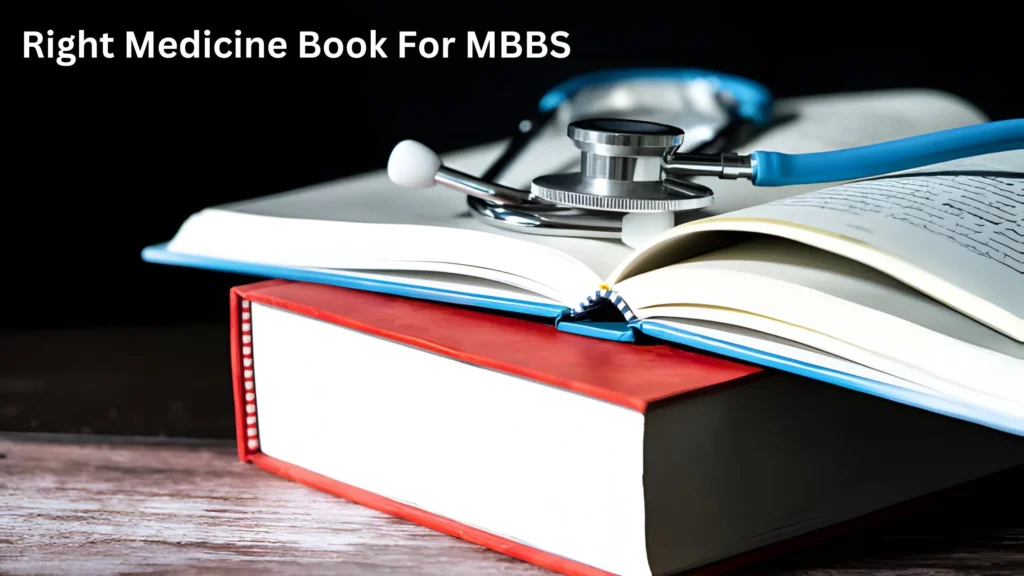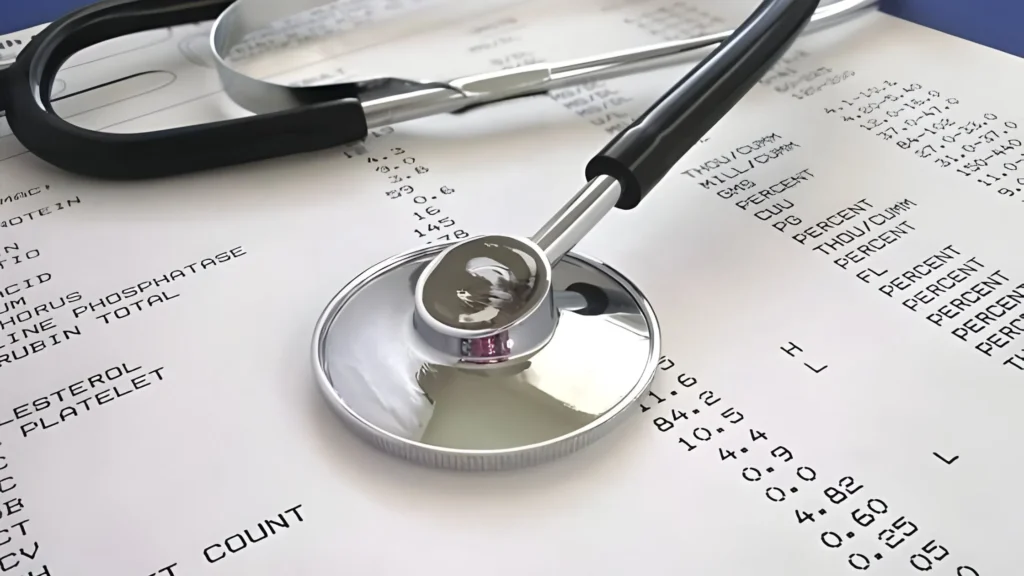The correct medicine books for MBBS can turn out to be your special weapon in handling the challenging MBBS program. They provide detailed explanations that help you strengthen your comprehension of intricate medical ideas. Textbooks are always available for reference, which means you can go back to important information whenever you want. Good resources give helpful practice questions and memory aids to help remember things well.
Choosing the Right Medicine Book For MBBS

Choosing the right medicine books for MBBS is very important. You should think about who the book is intended for undergraduate or postgraduate, if explanations are clear and have visuals, whether there are self-assessment tools such as practice questions, and the reputation of the author.
Some very common suggestions are Harrison’s Principles of Internal Medicine, Netter’s Atlas of Human Anatomy and Robbins & Cotran Pathologic Basis of Disease. For sure, you can search for these books. But it is good to remember that you should look into other choices too, according to your particular way of learning and what is asked by your course.
Navigating the Contents
There is a common framework that medicine books for MBBS usually use. Normally, each chapter begins with a list of learning aims which tells you what should be understood by the end. This part follows up with an in-depth description of the subject matter, frequently supported by diagrams, tables and drawings. Pay attention to the key words that have been emphasized in bold or italics. These are important ideas to understand.
Carefully read the book, taking note of review questions at the chapter’s finish. Use the index to effectively move through a book by finding desired topics quickly. Read actively, involving yourself with the content by writing notes, summarizing main points and attempting questions given.
Interactive Features and Resources
Medicine books for MBBS often include online resource access which can boost your learning. You may find these extra functions:
Interactive Features: There are some books that give online quizzes, animations, or 3D models to make hard ideas more real. Use these interactive parts for seeing anatomical structures, grasping disease processes and testing your understanding in a lively manner.
Companion Websites: Usually, publisher websites give you extra resources such as chapter summaries, flashcards and tools for self-evaluation. Utilize these internet supplements to better comprehend or examine your knowledge while on the move.
E-book versions: E-books have the advantage of a search function, which makes it easy to find specific details. You can also highlight and make notes in the digital text. Use these functions for your own study customizations and to make an active digital reference.
Ten Medicine Books For MBBS
In the medicine area, there is a lot to cover and it keeps changing. Therefore, having a solid set of textbooks to refer back to during your MBBS studies is crucial. These are 10 great Medicine books for MBBS students:
Harrison’s Principles of Internal Medicine: It is known as the top choice for internal medicine, covering everything about disease development, identification and cure.
Davidson’s Principles and Practice of Medicine: This is another classic text for studying internal medicine, but it gives a shorter and more useful method than Harrison.
Step-Up to Medicine: This is a textbook that, as the title suggests, helps you step up your understanding of key ideas in internal medicine. It’s designed for students studying this subject and includes easy-to-read explanations and information to prepare for exams or navigate through clinical rotations.
Current Medical Diagnosis & Treatment (CMDT): This book is updated every year and offers a handy resource with fast access to diagnosis and treatment suggestions for many health conditions.
Pocket Medicine: This is a small and useful book for understanding how to diagnose and handle regular medical situations. It’s good to keep Pocket Medicine with you when doing clinical rotations.
Macleod’s Clinical Examination: Known as a classic source for learning the technique and knowledge of physical examination, Macleod’s shows you how to do a complete physical check-up and understand what you find.
Clinical Pharmacy and Therapeutics by Tripathi: This book gives a detailed understanding of how medications are used in clinical practice. It encompasses the study of pharmacology, pharmacokinetics, and pharmacotherapeutics for different types of medications.
Katzung & Trevor’s Pharmacology: Examination & Board Review: This book, filled with crucial information, is an excellent tool to prepare for exams. It includes all the necessary points about pharmacology in a brief and easy-to-grasp manner.
Robbins & Cotran Pathologic Basis of Disease: This is a textbook that has been regarded as the classic standard for studying human pathology. It offers an in-depth understanding on what causes diseases, how they develop and their impacts.
Kumar & Clark’s Clinical Medicine: It is also one of the top Medicine Books For MBBS in internal medicine, covering all things from how diseases develop to their identification and cure. Kumar & Clark’s book is famous for its great pictures and clinical case studies.
Case Studies and Clinical Scenarios

This is a patient’s journey from being diagnosed with a disease to going through treatment and managing it over time. It shows how medical concepts are applied in real life, helping you understand theory better by seeing its use in clinical settings.
Case studies in Medicine Books For MBBS also promote critical thinking as you evaluate the given details, ponder over differential diagnoses, and use your understanding to unravel the case. This method improves your capability of turning theoretical knowledge from books into actual medical choices, making you ready for intricacies in your coming medical profession.
Practical Applications in Clinical Settings
Your Medicine Books For MBBS is not just a tool for remembering facts but also an important resource that helps you in your work as a doctor. It sets the base for practical clinical experience by connecting ideas with their real-life use. Instances of case studies, like said before, are one good demonstration.
These are practical tips and insights that doctors have accumulated from their experiences. Such pearls provide crucial advice on how to communicate with patients, carry out physical examinations efficiently, and understand the truths of the clinical environment.
The MBBS journey is like a marathon and having the correct medicine book as your companion will help you to overcome each step. So, pick carefully, use these suggestions smartly and turn your book into an entryway for medical expertise




